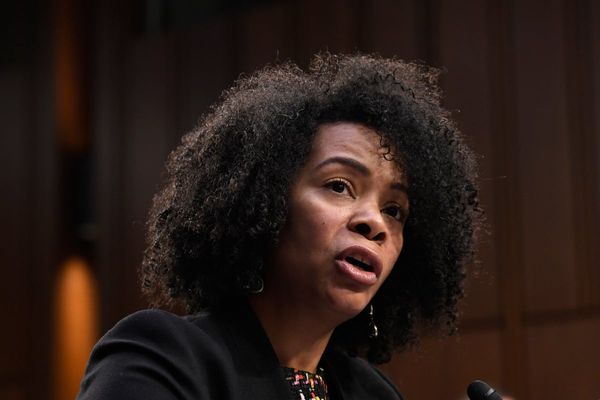Deprivation, want and envy are the driving themes in "Us," Jordan Peele's follow-up to his hit horror film from 2017, "Get Out." That film struck a nerve with its comic-surreal approach to racism and paranoia, but "Us" digs deeper under the skin. The story, about an affluent family of four attacked by their impoverished doppelgangers, suggests a larger statement about what it means to be happy and successful in a deeply unequal society.
"Who are you?" the family's patriarch, Gabe Wilson (Winston Duke), asks of the intruders. It's his wife's double who answers with a smile: "We're Americans."
A little too on-the-nose, you say? Maybe, but how many other filmmakers are even bothering to go there? Building on the success of "Get Out," Peele has a bigger budget, bigger stars and much bigger ambitions _ and it shows. On the one hand, "Us" is a more traditional horror film than "Get Out," with more jolts per minute and copious bloodshed. Yet it also goes further into the realms of surrealism, symbolism and dream imagery. One thing is for sure: There's nothing else that looks and feels quite like it.
The Wilsons, Gabe and Adelaide (a marvelous Lupita Nyong'o) have two children _ sassy preteen Zora (Shahadi Wright Joseph), and quiet Jason (Evan Alex) _ and a vacation home in Santa Cruz, California. The Wilsons listen to hip-hop while their friends, Josh and Kitty Tyler (Tim Heidecker and Elisabeth Moss), prefer The Beach Boys. When it strikes "vodka o'clock," though, everyone finds common ground.
"There's a family in our driveway," Jason says one night, and so there is: mom, dad, sis and junior, wearing curious red jumpsuits. They look like the Wilsons (and are played by the same actors), but on closer inspection they are thwarted, stunted; they communicate in breaths and grunts. Only Adelaide's double, Red, speaks. While the Wilsons have dined well and kept warm, she explains, their twins have lived like prisoners or slaves. They are shadows, "tethered" to the Wilsons _ and they've brought scissors to snip themselves free.
It's a marvelously creepy fairy tale, and Peele expands it into something close to a horror epic. As in "Get Out," the already unsettling story becomes progressively weirder until it finally enters a subconscious dream world _ in this case an underground labyrinth, rendered in Stanley Kubrick white, where Adelaide must stand her ground. "Us" occasionally tries to pack in more themes and motifs than one movie can reasonably hold, but at least Peele is reaching and stretching. If "Get Out" announced Peele as an exciting new talent, "Us" establishes him as one of the most visionary filmmakers of the day.







